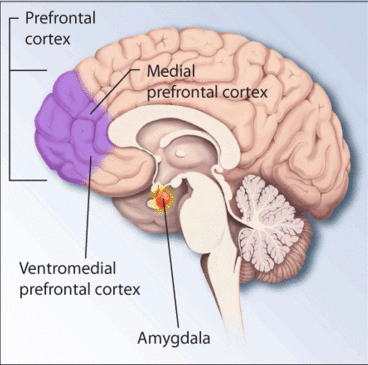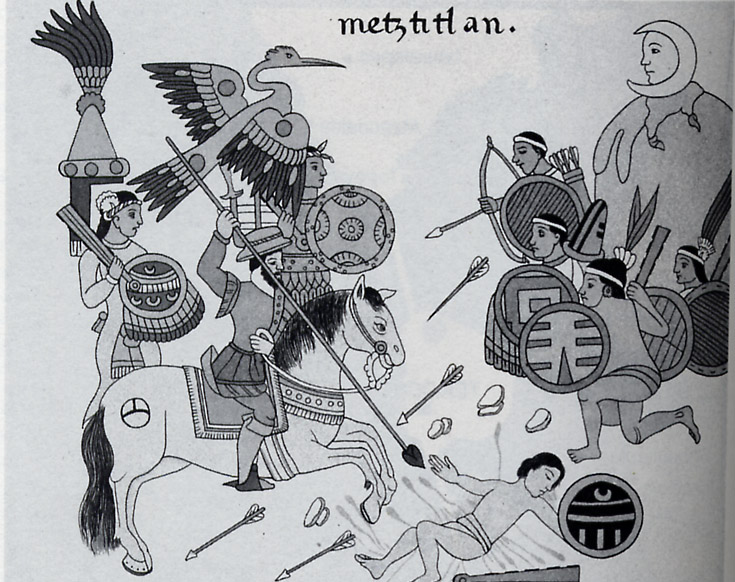|
Neophobia
Neophobia is the fear of anything new, especially a persistent and abnormal fear. In its milder form, it can manifest as the unwillingness to try new things or break from routine. In the context of children the term is generally used to indicate a tendency to reject unknown or novel foods. Food neophobia, as it may be referred to, is an important concern in pediatric psychology. In biomedical research, neophobia is often associated with the study of taste. Terminology The word ''neophobia'' comes from the Greek νέος, ''neos'', meaning "new, young", and φόβος, ''phobos'', for "fear". ''Cainophobia'' comes from the Greek καινός, ''kainos'', meaning "new, fresh". Alternative terms for neophobia include ''metathesiophobia'', ''prosophobia'', ''cainotophobia'' (or ''cainophobia''), and ''kainophobia'' (or ''kainolophobia''). Examples Norway rats and house mice are thought to have evolved increased levels of neophobia as they became commensal with humans because hum ... [...More Info...] [...Related Items...] OR: [Wikipedia] [Google] [Baidu] [Amazon] |
Picky Eating
Selective eating, also known as picky eating, is a variety of behaviors whereby a person is highly selective in what they do eat and what they do not eat. It is common in younger children, and can also sometimes be seen in adults. There is no generally accepted definition of selective eating, which can make it difficult to study this behavior. Selective eating can be conceptualized as two separate constructs: picky eating and food neophobia. Picky eaters reject both novel and familiar food, whereas food neophobic people are thought to reject unfamiliar foods specifically. Selective eating can be associated with rejecting mixed or lumpy foods. It can also be associated with sensory sensitivity. Estimates of the prevalence of selective eating vary due to measuring instruments, age of the sample, or population sample. However, studies suggest that feeding problems occur in about 80% of children with intellectual and developmental disabilities, and in about 25-45% of typically deve ... [...More Info...] [...Related Items...] OR: [Wikipedia] [Google] [Baidu] [Amazon] |
Avoidant/restrictive Food Intake Disorder
Avoidant/restrictive food intake disorder (ARFID) is a feeding or eating disorder in which individuals significantly limit the volume or variety of foods they consume, causing malnutrition, weight loss, or psychosocial problems. Unlike eating disorders such as anorexia nervosa and bulimia, body image disturbance is not a root cause. Individuals with ARFID may have trouble eating due to the sensory characteristics of food (e.g., appearance, smell, texture, or taste), executive dysfunction, fears of choking or vomiting, low appetite, or a combination of these factors. While ARFID is most often associated with low weight, ARFID occurs across the whole weight spectrum. ARFID was first included as a diagnosis in the fifth edition of the ''Diagnostic and Statistical Manual of Mental Disorders'' (DSM-5) published in 2013, extending and replacing the diagnosis of ''feeding disorder of infancy or early childhood'' included in prior editions. It was subsequently also included in the elev ... [...More Info...] [...Related Items...] OR: [Wikipedia] [Google] [Baidu] [Amazon] |
Neophilia
Neophile or Neophiliac, a term popularised by author Robert Anton Wilson, is a personality type characterized by a strong affinity for novelty. The term was used earlier by Christopher Booker in his 1969 book '' The Neophiliacs'', and by J. D. Salinger in his 1965 short story " Hapworth 16, 1924". Characteristics Neophiles/Neophiliacs have the following basic characteristics: * The ability to adapt rapidly to extreme change. * A distaste or downright loathing of routine. * A desire to experience novelty. * A corresponding and related desire to create novelty. A neophile is distinct from a revolutionary in that anyone might become a revolutionary if pushed far enough by the reigning authorities or social norms, whereas neophiles are revolutionaries by nature. Their intellectual abhorrence of tradition and repetition usually bemoans a deeper emotional need for constant novelty and change. The meaning of neophile approaches and is not mutually exclusive to the term visionary, but ... [...More Info...] [...Related Items...] OR: [Wikipedia] [Google] [Baidu] [Amazon] |
Specific Phobia
Specific phobia is an anxiety disorder, characterized by an extreme, unreasonable, and irrational fear associated with a specific object, situation, or concept which poses little or no actual danger. Specific phobia can lead to avoidance of the object or situation, persistence of the fear, and significant distress or problems functioning associated with the fear. A phobia can be a fear of anything. Although fears are common and normal, a phobia is an extreme type of fear where great lengths are taken to avoid being exposed to the particular danger. Phobias are considered the most common psychiatric disorder, affecting about 10% of the population in the US, according to the Diagnostic and Statistical Manual of Mental Disorders, Fifth Edition (DSM-5), (among children, 5%; among teens, 16%). About 75% of patients have more than one specific phobia. It can be described as when patients are anxious about a particular situation. It causes a great load of difficulty in life. Patients ... [...More Info...] [...Related Items...] OR: [Wikipedia] [Google] [Baidu] [Amazon] |
Progress Trap
A progress trap is the condition human societies experience when, in pursuing progress through human ingenuity, they inadvertently introduce problems that they do not have the resources or the political will to solve for fear of short-term losses in status, stability or quality of life. This prevents further progress and sometimes leads to societal collapse. The term "progress trap" has been utilized since at least 1975, when the ''TimesDaily'' newspaper from Florence, Alabama, featured an article on the Brazilian government finding itself caught between economic development and ecological health on May 8. A decade later, on August 16, 1985, an article by James David Barber for ''The Bryan Times'' featured the term. Walter Von Krämer discussed the issue in a medical context through a series of articles published in 1989 in ''Der Spiegel''. In 1990, Daniel Brian O'Leary conducted an independent study on the behavioral aspects of the condition, which he detailed in his paper. The ... [...More Info...] [...Related Items...] OR: [Wikipedia] [Google] [Baidu] [Amazon] |
Phobia
A phobia is an anxiety disorder, defined by an irrational, unrealistic, persistent and excessive fear of an object or situation. Phobias typically result in a rapid onset of fear and are usually present for more than six months. Those affected go to great lengths to avoid the situation or object, to a degree greater than the actual danger posed. If the object or situation cannot be avoided, they experience significant Distress (medicine), distress. Other symptoms can include fainting, which may occur in Blood phobia, blood or injury phobia, and panic attacks, often found in agoraphobia and emetophobia. Around 75% of those with phobias have multiple phobias. Phobias can be divided into specific phobias, social anxiety disorder, and agoraphobia. Specific phobias are further divided to include certain animals, natural environment, blood or injury, and particular situations. The most common are fear of spiders, fear of snakes, and fear of heights. Specific phobias may be caused by ... [...More Info...] [...Related Items...] OR: [Wikipedia] [Google] [Baidu] [Amazon] |
Habituation
Habituation is a form of non-associative learning in which an organism’s non-reinforced response to an inconsequential stimulus decreases after repeated or prolonged presentations of that stimulus. For example, organisms may habituate to repeated sudden loud noises when they learn that these have no consequences. Habituation can occur in responses that habituate include those that involve an entire organism or specific biological component systems of an organism. The broad ubiquity of habituation across all forms of life has led to it being called "the simplest, most universal form of learning...as fundamental a characteristic of life as DNA." Functionally, habituation is thought to free up cognitive resources for other stimuli that are associated with biologically important events by diminishing the response to inconsequential stimuli. A progressive decline of a behavior in a habituation procedure may also reflect nonspecific effects such as fatigue, which must be ruled ... [...More Info...] [...Related Items...] OR: [Wikipedia] [Google] [Baidu] [Amazon] |
Cognitive Ethology
Cognitive ethology is a branch of ethology concerned with the influence of conscious awareness and intention on the behaviour of an animal. Donald Griffin, a zoology professor in the United States, set up the foundations for researches in the cognitive awareness of animals within their habitats. The fusion of cognitive science and classical ethology into cognitive ethology "emphasizes observing animals under more-or-less natural conditions, with the objective of understanding the evolution, adaptation (function), causation, and development of the species-specific behavioral repertoire" (Niko Tinbergen 1963). According to Jamieson & Bekoff (1993), "Tinbergen's four questions about the evolution, adaptation, causation and development of behavior can be applied to the cognitive and mental abilities of animals." Allen & Bekoff (1997, chapter 5) attempt to show how cognitive ethology can take on the central questions of cognitive science, taking as their starting point the four ques ... [...More Info...] [...Related Items...] OR: [Wikipedia] [Google] [Baidu] [Amazon] |
Culture Shock
Culture shock is an experience a person may have when one moves to a cultural environment which is different from one's own; it is also the personal disorientation a person may feel when experiencing an unfamiliar way of life due to immigration or a visit to a new country, a move between social environments, or simply transition to another type of life. One of the most common causes of culture shock involves individuals in a foreign environment. Culture shock can be described as consisting of at least one of four distinct phases: honeymoon, negotiation, adjustment, and adaptation. Common problems include: information overload, language barrier, generation gap, technology gap, skill interdependence, formulation dependency, homesickness (cultural), boredom (job dependency), ethnicity, Race (human categorization), race, skin color, response ability (Cross-cultural capital, cultural skill set). There is no true way to entirely prevent culture shock, as individuals in any society are ... [...More Info...] [...Related Items...] OR: [Wikipedia] [Google] [Baidu] [Amazon] |
List Of Phobias
The English suffixes -phobia, -phobic, -phobe (from Greek φόβος ''phobos'', "fear") occur in technical usage in psychiatry to construct words that describe irrational, abnormal, unwarranted, persistent, or disabling fear as a mental disorder (e.g., agoraphobia), in chemistry to describe chemical aversions (e.g., hydrophobic), in biology to describe organisms that dislike certain conditions (e.g., acidophobia), and in medicine to describe hypersensitivity to a stimulus, usually sensory (e.g., photophobia). In common usage, they also form words that describe dislike or hatred of a particular thing or subject (e.g., homophobia). The suffix is antonymic to -phil-. For more information on the psychiatric side, including how psychiatry groups phobias such as agoraphobia, social phobia, or simple phobia, see phobia. The following lists include words ending in ''-phobia'', and include fears that have acquired names. In some cases, the naming of phobias has become a word game, ... [...More Info...] [...Related Items...] OR: [Wikipedia] [Google] [Baidu] [Amazon] |
Supertaster
Supertasters are individuals whose sense of taste for certain flavors and foods, such as chocolate, is far more sensitive than the average person. The term originated with experimental psychologist Linda Bartoshuk and is not the result of response bias or a scaling artifact but appears to have an anatomical Anatomy () is the branch of morphology concerned with the study of the internal structure of organisms and their parts. Anatomy is a branch of natural science that deals with the structural organization of living things. It is an old scien ... or biological basis. Over the past two decades, the study of many differences in oral sensation has grown to encompass the idea of supertasting. Originally identified as the heightened response to the suprathreshold bitterness of concentrated Propylthiouracil, propylthiouracil (PROP), the contemporary view supports that supertasting encompasses an elevated response to all taste qualities. Discovery Reports of variations in ... [...More Info...] [...Related Items...] OR: [Wikipedia] [Google] [Baidu] [Amazon] |



